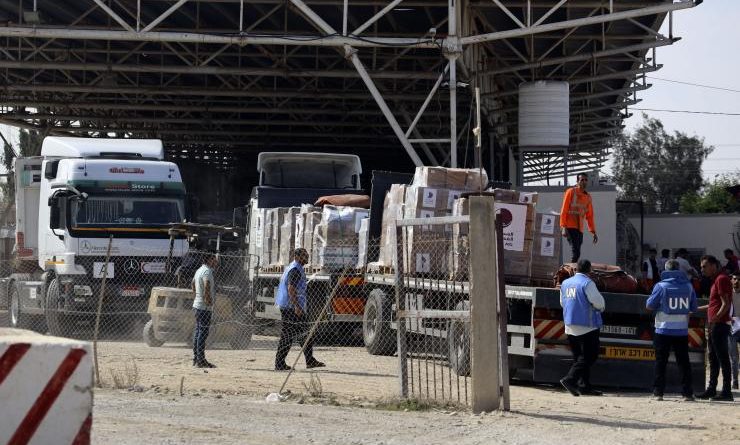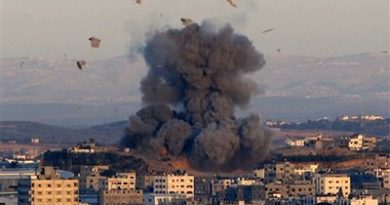UNICEF Delivers packages of Humanitarian Aid to Gaza
Anthony Samaniengo
Staff Writer
UNICEF has responded to the growing humanitarian crisis in the Gaza Strip by delivering supplies and other forms of aid. On October 21, UNICEF, in conjunction with the World Health Organization (WHO), World Food Program, and the Egyptian Red Crescent, sent a 20-truck convoy delivering lifesaving goods through Rafah, where Egypt borders the Gaza Strip. Aside from 44,000 bottles of water, the aid trucks also carried food, fuel, medicines and other essential everyday services to families in Gaza, where days of escalating conflict with Israel have caused infrastructure to be reduced to rubble.
The destruction of Gaza’s infrastructure as a result of Israel’s bombings has particularly impacted Gaza’s water sanitation systems. Additionally, two days after Hamas’s initial attack, Israel declared a full siege on Gaza, prohibiting any delivery of goods to the Gaza strip. As a result, Gaza’s water production capacity is at 5 percent of normal levels. 2.3 million people currently residing in Gaza must now survive off of 3 liters of water per person each day, says UNICEF. The WHO warned that the siege on the Gaza strip and ban on delivery of humanitarian aid could result in a humanitarian catastrophe, according to Al Jazeera.
Many aid organizations and news agencies confirmed that a total of 34 trucks carrying relief supplies arrived at the Gaza strip last weekend, reports DW. Rafah is the main point of delivery for humanitarian aid that is aimed at reaching civilian residents of Gaza. The Egyptian Red Crescent states that on October 23, an additional 40 trucks worth of aid were due to cross the Rafah border into Gaza, but on October 24, a United Nations aid spokesperson confirmed the arrival of only 20 trucks.
On Tuesday, the UN aid spokesperson confirmed that no further deliveries were expected after the arrival of initial the 20 trucks. DW continues that aid organizations have estimated that around 100 truckloads of aid need to reach civilian residents in Gaza to meet their basic needs. The UN World Food Programme told Reuters that overly strict and long checks of humanitarian aid delivery trucks were slowing the flow of aid, as need rises amongst Palestinian residents of Gaza. Three World Food Program trucks carrying up to 60 tons of food were confirmed to be enough to feed 200,000 people for only a day.
Civilian residents of Gaza are still in urgent need of fuel to power hospital generators, heat homes and buildings, cook, and power infrastructure to supply water, DW continues. Despite confirmation of limited deliveries of food, water and medicine, Israel is still preventing the delivery of fuel, arguing that it could be used as a diversion by Hamas.
As a result of the conflict, more than 1 million individuals are experiencing an ongoing humanitarian crisis, according to Forbes. Prior to the opening of the Rafah border with Gaza, humanitarian organizations already had stockpiles of humanitarian aid with lifesaving supplies on the Egyptian side of the border, waiting for its opening to deliver the aid, according to The Guardian. UN aid chief Martin Griffiths told The Guardian that basic utilities such as water, food, medical equipment and fuel were running low for residents of Gaza while bombings over infrastructure carried out by Israel occurred before the aid could be delivered.
Image courtesy of UNICEF




